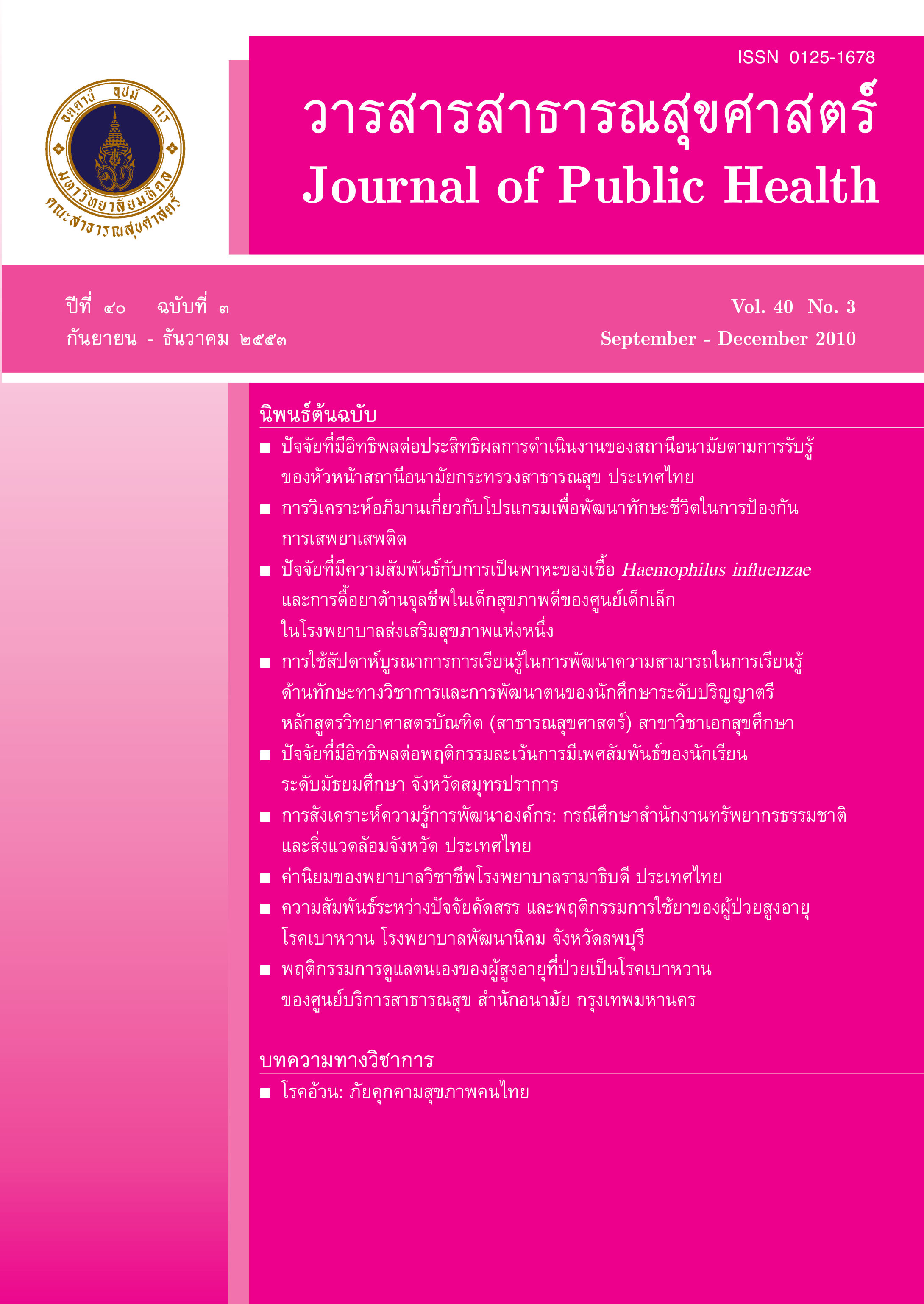ปัจจัยที่มีอิทธิพลต่อพฤติกรรมละเว้นการมีเพศสัมพันธ์ของนักเรียนระดับมัธยมศึกษา จังหวัดสมุทรปราการ
Keywords:
sexual abstinence behavior, adolescent, sex education, perception of friends’ norms, พฤติกรรมละเว้น, การมีเพศสัมพันธ์, วัยรุ่น, เพศศึกษา, การรับรู้บรรทัดฐานของกลุ่มเพื่อนAbstract
ABSTRACT
A cross sectional survey study was conducted aimed at identifying influencing and predicting factors of sexual abstinence behavior among secondary school students in Samutprakan province, Thailand. Total 420 adolescences aged between 13-19 years old were selected using a multi-stage sampling technique. Data were collected through self-administered questionnaire. Data were analyzed by descriptive statistics, percentage, mean and standard deviation, Chi-square test, Pearson’s product Moment Correlation Coefficient and Stepwise multiple regression analysis. The results revealed that 46% of the respondents reported sexual abstinence behavior at a high level; whereas, 34% maintained a low level and 20% reported a moderate level. Factors with significance associated with sexual abstinence behavior among the respondents comprised predisposing factors consisted of age, male sex, attitude towards sexual abstinence behavior and practice of religious principles; enabling factors consisted of experience to receive sex education; and reinforcing factors consisted of perception of friends’ norms. Influencing and predicting factors on sexual abstinence behavior among the respondents were perception of friends’ norms, experience to receive sex education, male sex and age. All factors were able to predict sexual abstinence behavior among the respondents correctly at 19.4%
This study recommends all public health institutions engage in proactive activities on sex education which schools and communities to prevent pre-marital sex and to promote sexual abstinence behavior among adolescents.
Key words: sexual abstinence behavior, adolescent, sex education, perception of friends’ norms
Downloads
Issue
Section
License
Creative Commons License CC-BY-ND


